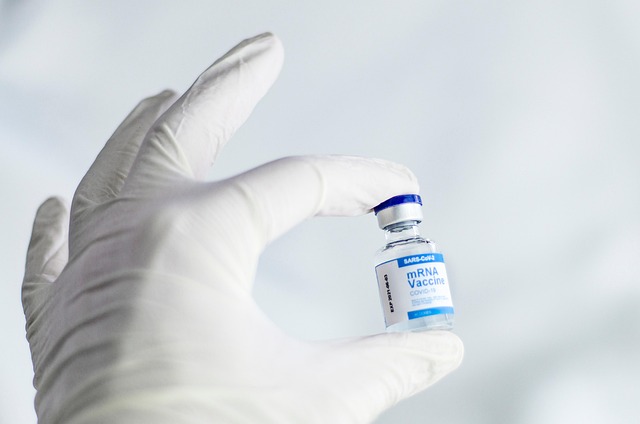Alcohol consumption is deeply embedded in many cultures worldwide, often associated with social gatherings, celebrations, and relaxation. However, its impact on health—particularly chronic disease risk—is complex and multifaceted. While moderate alcohol intake has been linked to certain health benefits, excessive or prolonged drinking significantly increases the risk of developing a range of chronic conditions. Understanding how alcohol affects your body can empower you to make informed decisions about your drinking habits and prioritize long-term well-being.
The Dual Nature of Alcohol: Benefits vs. Risks
Before delving into the risks, it’s important to acknowledge that some studies suggest potential health benefits of moderate alcohol consumption, particularly for heart health. For example:
- Cardiovascular Protection : Moderate red wine consumption has been associated with increased levels of “good” HDL cholesterol and antioxidants like resveratrol, which may reduce the risk of heart disease.
- Social and Psychological Benefits : In moderation, alcohol can enhance social bonding and provide stress relief.
However, these potential benefits are outweighed by the risks when consumption exceeds recommended limits. The key takeaway is that moderation—and individual factors like genetics and overall lifestyle—play critical roles in determining whether alcohol harms or helps.
Chronic Diseases Linked to Alcohol Consumption
1. Cardiovascular Diseases
While moderate drinking may have protective effects for some, excessive alcohol intake is a major contributor to cardiovascular problems, including:
- High Blood Pressure (Hypertension) : Alcohol can raise blood pressure, increasing the strain on your heart and arteries.
- Heart Failure and Cardiomyopathy : Prolonged heavy drinking weakens the heart muscle, impairing its ability to pump blood effectively.
- Arrhythmias : Irregular heartbeats, such as atrial fibrillation, are common among heavy drinkers.
- Stroke : Excessive alcohol use raises the risk of both ischemic and hemorrhagic strokes.
2. Liver Diseases
The liver metabolizes alcohol, and chronic overconsumption can overwhelm this vital organ, leading to serious conditions:
- Fatty Liver Disease : The accumulation of fat in liver cells, often reversible with abstinence.
- Alcoholic Hepatitis : Inflammation of the liver caused by prolonged heavy drinking, which can progress to cirrhosis.
- Cirrhosis : Scarring of the liver tissue, impairing its function and potentially leading to liver failure or cancer.
3. Cancer
Alcohol is classified as a Group 1 carcinogen by the International Agency for Research on Cancer (IARC). Even moderate drinking increases the risk of several cancers, including:
- Mouth, Throat, and Esophageal Cancers : Alcohol irritates tissues and promotes DNA damage.
- Liver Cancer : Often secondary to alcohol-induced cirrhosis.
- Breast Cancer : Studies show that even one drink per day slightly elevates breast cancer risk due to hormonal changes triggered by alcohol.
- Colorectal Cancer : Heavy drinking is associated with an increased risk of colon and rectal cancers.
4. Type 2 Diabetes
Alcohol’s relationship with diabetes is nuanced. While moderate drinking may improve insulin sensitivity in some individuals, excessive consumption disrupts glucose metabolism and increases the risk of type 2 diabetes through:
- Pancreatic Damage : Chronic drinking can inflame the pancreas, reducing its ability to produce insulin.
- Weight Gain : High-calorie alcoholic beverages contribute to obesity, a primary risk factor for diabetes.
5. Mental Health Disorders
Excessive alcohol use is closely tied to mental health issues, which can exacerbate chronic disease risk:
- Depression and Anxiety : Alcohol alters brain chemistry, worsening symptoms of mood disorders.
- Cognitive Decline : Long-term heavy drinking increases the risk of dementia and neurodegenerative diseases like Alzheimer’s.
6. Gastrointestinal Issues
Alcohol irritates the digestive system, contributing to:
- Gastritis : Inflammation of the stomach lining, causing pain and nausea.
- Pancreatitis : Inflammation of the pancreas, which impairs digestion and nutrient absorption.
- Nutrient Deficiencies : Poor dietary choices and alcohol’s interference with nutrient absorption lead to deficiencies in vitamins like B12 and folate.
Factors That Influence Risk
Not everyone who drinks will develop chronic diseases, but certain factors increase susceptibility:
- Genetics : Some individuals metabolize alcohol differently, making them more prone to liver damage or addiction.
- Gender : Women are generally more vulnerable to alcohol’s harmful effects due to differences in body composition and enzyme activity.
- Drinking Patterns : Binge drinking (consuming large amounts in a short period) poses greater risks than spreading consumption over time.
- Overall Lifestyle : Smoking, poor diet, lack of exercise, and other unhealthy behaviors compound alcohol’s negative effects.
Guidelines for Safe Drinking
To minimize chronic disease risk, public health organizations recommend adhering to the following guidelines:
- Moderate Intake : Up to one drink per day for women and up to two drinks per day for men.
- Avoid Binge Drinking : Limit episodes of consuming four or more drinks (women) or five or more drinks (men) within two hours.
- Choose Lower-Alcohol Options : Opt for lighter beers, wines, or spirits mixed with non-alcoholic beverages.
- Know Your Limits : Be aware of how alcohol affects your body and adjust accordingly.
Strategies for Reducing Alcohol-Related Risks
If you choose to drink, consider these strategies to protect your health:
- Stay Hydrated : Alternate alcoholic drinks with water to prevent dehydration.
- Eat Before Drinking : Consuming food slows alcohol absorption and reduces its impact on blood sugar levels.
- Monitor Portion Sizes : Standard drink sizes vary; measure pours to avoid unintentional overconsumption.
- Take Regular Breaks : Incorporate alcohol-free days into your routine to give your body a chance to recover.
- Seek Support : If you struggle with controlling your drinking, consult a healthcare professional or join support groups like Alcoholics Anonymous.
